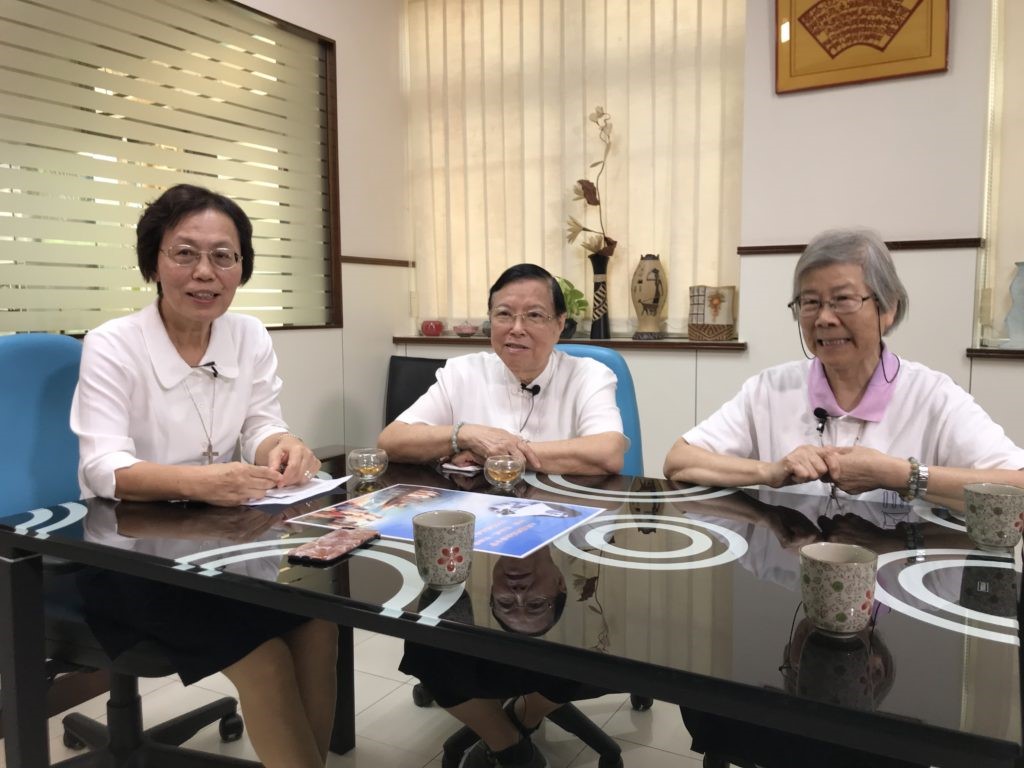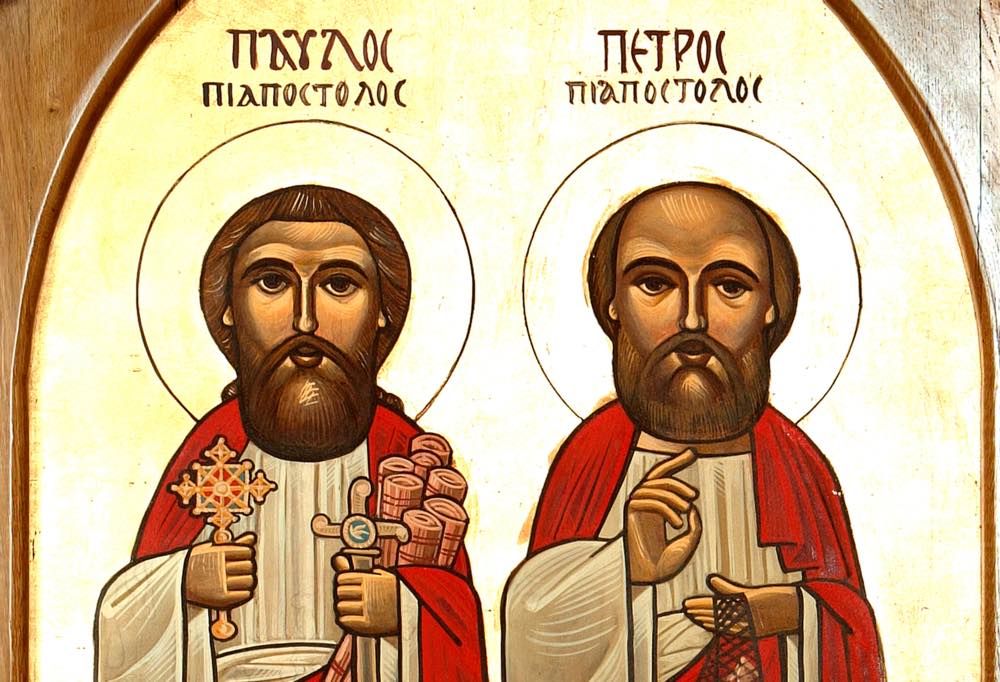– Jasmin Yiu
Holy Family School (Escola da Sagrada Família) celebrates its 60th anniversary this year. At the same time, it is also the 100th anniversary of the school’s founding institute – the Congregation of Dominican Missionary Sisters of the Rosary. O Clarim had a chance to visit the school and to talk to Sister Cecília Lam Sok Wa, Sister Maria Camino Kong and Sister Trinidad Chan, who all have made huge contributions to the school.
Sister Cecília firstly introduced the foundress of the Congregation, Blessed Ascensión Nicol y Goñi, a Spanish nun originally from the Dominican Third Order for 27 years. “There were two main types of nuns in Dominican Order, one is cloistered and the other is not, but the sisters of the latter could teach in a school or a dormitory. At that time, our foundress was a teacher at the school under the order,” said Sister Trinidad, who is now in her 80s.
Under the anti-clerical laws promulgated in the early 20th century, causing the school to be taken over by the Spanish government, and the sisters of the order expelled. Blessed Ascensión and the other four nuns were invited by a Dominican Bishop – Ramón Zubieta, who was originally from the Philippines and was later appointed by the Holy See as the Apostolic Vicar in a poor area of the Peruvian Amazon, to travel to Peru and teach the poor. Sister Trinidad continued, “Being asked to leave her own country for a new mission to teach the poor women, our foundress described it as her second vocation. And our charism came out: To evangelize the poor in those missionary situations where the church needs us most. It was our foundation, and a new congregation of missionary started.”
Life in Puerto Maldonado was hard, but Mother Ascension from the first moment approached the village, visited the sick and taught women the care of the house, and affectionately urging them improve their lives and send their children (especially their daughters) to school. Moreover, the lack of organized health care for the poor and the sick led the sisters to expand medical care as a new apostolate, which was also the first step the congregation took when it came to China.
Medical skills open the apostolate in the Chinese land
Sister Maria, also in her 80s, shared her path on answering God’s call to the congregation. She said, “our congregation had a very huge and famous hospital in Fuzhou. My mother and elder brother, who is also a priest, worked in the hospital at that time. I was only nine years old. I was very happy to stay in the hospital and to look at the nuns saving people. They were very skillful! Ten injured people were sent into the hospital and all left healthy! But the hospital was pulled down because of the political environment in the Mainland. My brother and I had to escape to Taiwan and Hong Kong.” Sister Maria and Sister Trinidad later explained that almost all nuns of the congregation know medicine, which also has a great contribution in their apostolate in Macau.
Stepping into Macau
Sister Maria wanted to join the Congregation of Dominican Missionary Sisters of the Rosary, but there was none in Hong Kong, so she moved to Macau and stayed with the other Spanish sisters at Holy Family School. She said that the school originally started as nursing home in 1958. The whole building only had two floors: the first floor used for nursing home, whereas the ground floor was a clinic.
Sister Maria said, “At that time, we were only twelve sisters, and there were so many poor people coming to the clinic. Since I know nothing about medicine, so I was just a translator between the patients and the Spanish nuns, who were experts in medicine.” She also said there were many drug addicts and beggars, and she even saw people taking drugs at the corner beside their building. “We were very poor at that time! We had no beds, we put the carton boxes together and slept on them. Those boxes were our bed!” Sister Maria added.
Apart from taking care of toddlers and patients, the sisters also gave doctrine and catechism classes to the public after a whole day of work. Sister Trinidad recalled, “At that time there was a very nice priest who gave us some food and goods for distributing to the poor, like milk, oil, salt, biscuits etc. If the people wanted to get them, they had to attend the catechism class before queuing. This was another way of missionary work!”
Improvements and expansion of the school
With the help of the government and the Diocese of Macau, the school started to expand. They started kindergarten in 1959, Primary 1 and 2 in 1963. And in 1966, a second building with five floors of the school was built, which could also accommodate more young ladies from the Mainland, Vietnam and Burma, and to let them receive vocational training for their basic needs. In 1971, the third building of the school was also built.
After becoming the principal of Holy Family School since 1991, Sister Cecília has made innovative improvements, that inclues promoting the four educational principles: Happiness, Creativity, Diversity and Openness. Moreover, in order to follow the teaching of the foundress of the congregation, Sister Cecília also promoted different aid programs in the Mainland, helping rural and poor areas in China to build schools, helping every child to have a chance to receive education.
While listening to the elder generation talk about their history, Sister Cecília, who is from a different generation, was very moved. She said that “the older sisters and their stories in the early days have always encouraged me, especially when there are difficulties that come up.”
Originally from Taipei and joining the congregation at an adult age, Sister Cecília thinks it is now very hard to pass the torch and to let young people knowing the spirit of vocation. She said, “The time is different now. People are very focused to be knowledgeable.” She, as well as the other two sisters, think that nowadays people are materialistic and unwilling to think twice about religious calling. But at the moment, they will keep praying for this intention, and focus on their current work, which is to continue developing the school with the charism of the congregation.


 Follow
Follow


